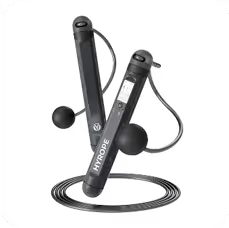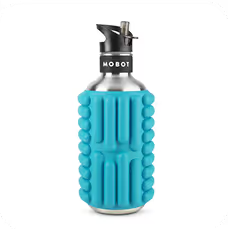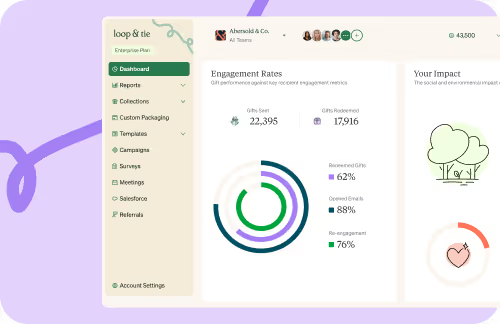Rewards that Don’t Suck: The Truth About Gifts vs. Bonuses
When it comes to recognizing employees, many companies face the classic dilemma: gifts or bonuses? Cash might seem like the obvious choice, but the reality is that financial incentives don’t always have the long-term impact leaders hope for. While bonuses are undeniably appreciated, they often lack the personal touch and emotional connection that make employees feel truly valued.
So, what’s the better option? Should you stick with traditional cash rewards, or is it time to rethink your strategy and explore the power of personalized gifts? Let’s break down the truth about gifts versus bonuses—and why your rewards strategy might need a refresh.
1. Bonuses: Why Cash Isn’t Always King
There’s no denying that bonuses are a big deal. After all, who doesn’t love extra money in their pocket? But while bonuses have their place, they often come with some unintended consequences that limit their effectiveness.
- Bonuses Blend into Regular Compensation
A bonus, no matter how generous, often feels like just another paycheck. Once the initial excitement fades, employees tend to view it as part of their regular compensation, especially if it’s expected year after year. It doesn’t have the same lasting impact or emotional connection as a carefully chosen gift. - Bonuses Are Spent and Forgotten
When people receive a cash reward, they typically use it to pay bills, cover daily expenses, or add it to savings. While that’s certainly practical, it means the bonus often disappears without leaving a lasting impression. Once the money is spent, the memory of the reward fades too. - Bonuses Don’t Always Drive Loyalty
While cash rewards can motivate short-term performance, they’re less effective in fostering long-term loyalty. When employees feel like they’re just being compensated for work already done, they might not feel as personally valued. Bonuses can sometimes feel transactional, rather than a genuine expression of appreciation.
2. Gifts: Why Personalization Wins Every Time
On the flip side, thoughtful, personalized gifts can have a surprisingly powerful effect on employee satisfaction and loyalty. Here’s why gifts often outperform bonuses when it comes to showing employees you care.
- Gifts Create Emotional Connections
A personalized gift feels like it was chosen with care, and that emotional connection makes a big difference. Employees who receive a thoughtfully selected gift are more likely to remember it fondly and feel a deeper sense of appreciation. The positive feelings that come with receiving a gift can foster long-term loyalty and boost morale. - Gifts Stand Out in a Meaningful Way
Unlike cash, which can blend into the background, a gift is tangible and memorable. Whether it’s a quality product, a unique experience, or even a donation to a cause that matters to the recipient, a well-chosen gift makes a lasting impact. It serves as a reminder that the company values the employee for who they are, not just the work they do. - Gifts Show You Know Your People
A gift is an opportunity to show employees that you understand and appreciate them on a personal level. When you take the time to choose something that aligns with their interests, hobbies, or passions, it shows that you see them as individuals, not just as employees. This personal touch can make all the difference in creating a culture of appreciation.
3. Gifts vs. Bonuses: It Doesn’t Have to Be Either/Or
The truth is, you don’t have to choose between gifts and bonuses. In fact, combining both can be a powerful one-two punch. Bonuses can be used to reward performance and incentivize short-term goals, while personalized gifts can be reserved for showing appreciation, building relationships, and reinforcing company culture.
The key is to be intentional with how and when you use each type of reward. Consider bonuses for milestone achievements or year-end performance payouts, but use gifts for moments when you want to make a personal connection—such as birthdays, holidays, work anniversaries, or even as a surprise “just because” gesture.
4. How to Make Gifting Easy and Impactful
Of course, finding the perfect gift for each employee can feel like a daunting task—especially for large teams or organizations with diverse interests. That’s where platforms like Loop & Tie come in. Loop & Tie offers a wide selection of curated gifts across multiple categories, allowing employees to choose something they truly want.
With this approach, you’re giving the gift of choice, while still providing a personal and memorable experience. Employees receive a beautifully presented collection of gift options and can pick the one that resonates with them the most—eliminating the guesswork for you and ensuring they get something they’ll love.
5. The Takeaway: Choose Connection Over Compensation
At the end of the day, both bonuses and gifts have their place in your employee recognition strategy. But when it comes to making a lasting impression, gifts have the edge. They offer a more personal, thoughtful way to show appreciation and create a connection that cash rewards can’t match.
So, as you plan your next round of employee rewards, consider how you can balance both approaches. Use bonuses for the financial reward they provide, but don’t underestimate the emotional power of a well-chosen gift. When you show employees that you see them as individuals, not just workers, you create a culture of appreciation—and that’s a reward that truly doesn’t suck.
Read our 2024
Impact Report









.webp)















